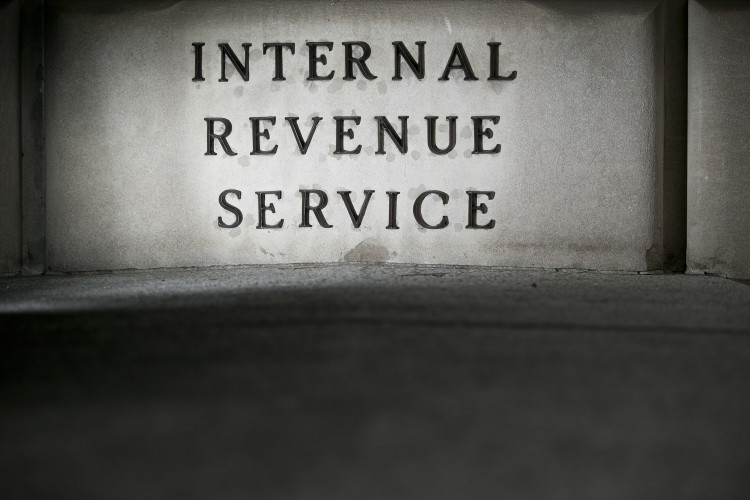How Not to Hate Doing Your Taxes

(Bloomberg) —Imagine that, every year at the same time, somebody wrote you a check for $3,000. Would that be such a horrible thing? Would you dread the months leading up to that?
Now imagine it’s the U.S. government. About 70 percent of Americans get a refund after filing their income taxes; the average is around $3,000. Yet apparently, many of us would rather go to the dentist than do our taxes.
So we asked experts in behavioral science and economics and Nina Olson, national taxpayer advocate, what the Internal Revenue Service—and we taxpayers—could do to make filing taxes feel … not good, exactly, but less bad. Most presented their ideas with a straight face.
Electronic filing starts on Jan. 23. That’s Monday. Yeah, it’s not like a chance to grab Bruce Springsteen tickets, but as we see below, it doesn’t have to be a gallbladder extraction, either.
Change the story The story we tell ourselves about paying taxes is: The government is making us do work. “The fact that doing taxes is so complex means that it moves from being something where people think about their civic duty to something where people are thinking about an antagonistic, unpleasant relationship with the government,” said Duke University behavioral economics professor Dan Ariely.
And thinking of taxes as work is a perfectly natural thing for taxpayers to do, said Stephen Wendel, head of behavioral science for Morningstar. “The narrative hasn’t been defined by the IRS around what good comes out of paying taxes,” he said. “We can all find good in having schools, having a military, and so on, but that’s never really been the focus.” The IRS could also play off the fact that people use refunds to pay off debt, save for the future, and buy things they like, he said.
Topping the list of IRS shortcomings this year on the annual report card Olson gives the agency: It doesn’t make enough use of behavioral research insights to encourage voluntary compliance with the tax code.
Show us the money The whitehouse.gov website has a receipt generator that lets you plug in your tax payment to reveal how your tax dollars were divided among 14 programs and services. The IRS should create its own, more detailed receipt for taxpayers, Olson said.
Olson recalled an infographic she saw on Her Majesty’s Revenue & Customs’ site that showed the taxes a Briton paid and then broke it down to show that they had paid for half of a teacher’s salary, or this much research in an experimental drug, or this much of a firefighter’s salary. “I thought about how, in California, you could say your taxes paid for this many days of firefighting,” she said.The IRS has a high-level pie chart of where our tax dollars go in the printed instruction booklet for form 1040. Olson wants an interactive pie chart on irs.gov to let us show how we’d divvy up our tax dollars. “It would get people a little more invested and engaged,” she said. “You’re not going to love paying taxes, but you understand why you’re paying taxes. You feel like you have some kind of voice.”
Give us some bragging rights You can make people feel better about paying taxes by showing them the government is handling their money responsibly, said Meir Statman, a behavioral finance professor at Santa Clara University. “Money can go to Medicare, but is it used efficiently to improve health at low cost?” he asked. “Money can go to the Department of Labor, but is it used efficiently to enact and enforce regulations, such as fiduciary regulations, that help people increase their retirement savings?”
Still, he acknowledged, that’s a tall order. You could just play shamelessly to Americans’ love of status. For example, the IRS building could be renamed each year after the person who paid the most in taxes, he said, as when corporations buy the naming rights to sports arenas. (What about when a businessman is paid to put his name on a building?)
Or, Statman said slyly, maybe Bloomberg LP could create a Bloomberg American Honors list, such as the Bloomberg Billionaires list. Those who pay a lot of taxes rank high on the list. The name plays on Queen Elizabeth’s honors lists that comes out twice a year, Statman said. “Americans can’t be on the list, for constitutional reasons, but any designation that reminds people of royalty” is the next-best thing, he said.
(While everybody’s thinking outside of the box, we interrupt this column to recommend “Would You Like the IRS If It Looked Like This? Three Top Design Firms Do a Rebrand.”)
Just bribe us, already What if you could designate where some of the money you pay in taxes would go—to education, maybe, health care, defense? Ariely and others have floated the idea. Pesky legal precedents raise an obstacle, Olson said. It’s not quite the same, but during the Vietnam War some Americans figured out how much of their tax payments were going to the military, subtracted this from their payments, and wrote on their return that they were withholding it in protest, she said. They had to pay a penalty.
Ariely proposed a less-complicated idea in a 2010 blog post:
Let’s say that your 1040 came with a little extra stuff: maybe a container with an alcohol content, or perchance something of the chocolate persuasion. What if your tax forms arrived in a gift box with some financial documents on the side? What if the instructions for filling out the form told you to type in your personal information and take a bite of chocolate, type in your W-2 information and drink some of the alcohol, add your deductions and try some of the nuts etc?
The idea of the government pre-populating our tax forms hints of Big Brother for some of us. The IRS could still leave people in control, Morningstar’s Wendel suggested, while making it all a lot easier by filling out the forms with the information it has and telling taxpayers, as he put it: “Hey, you don’t have to do all this work, but could you check that the numbers are correct and fill in anything that’s missing?”
“You don’t get angry at an assistant for helping you do something hard,” he said.
Well. You don’t have to.




No Comment